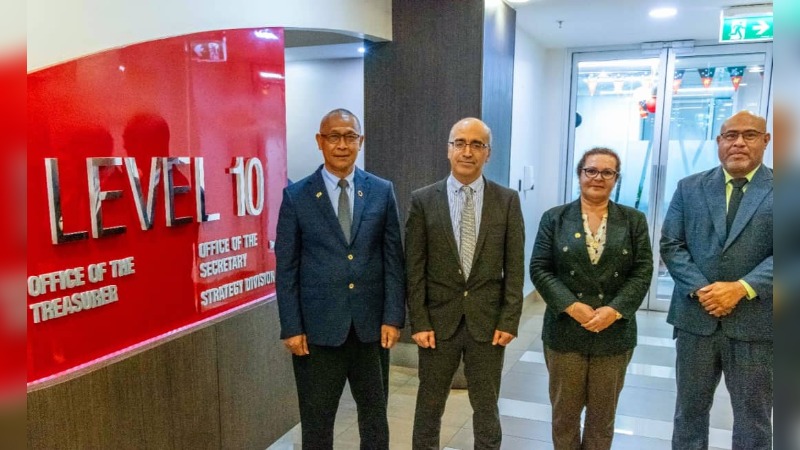The country’s Treasurer has said that Papua New Guinea (PNG) has met the economic reform benchmarks that was reached with the International Monetary Fund (IMF) at the beginning of the year.
Treasurer, Ian Ling-Stuckey stated that out 18 reforms that were set out in his presentations, 17 have been met with one still in the works due to a minor delay.
“17 have been met and one has had a minor delay as the updated Medium-Term Revenue Strategy has been agreed to by the Ministerial Economic Sub-Committee of the NEC, but not considered yet by the NEC itself.”
He said in addition to this, there has been “staff level” agreement for new benchmarks that will be taken to NEC for consideration.
“During our final meeting of the ‘first review’ visit from 6 to 21 September, the IMF review team indicated that less than half of countries passed the first review process of an IMF program.”
He went on to state that despite all the political critics, PNG is continuing well with its economic reforms on budget repair, lifting incomes, creating jobs, reducing foreign exchange shortages and fighting corruption.
The Treasurer mentioned that the Marape-Rosso Government’s closer working relationships with the IMF started in 2019 as both parties worked together to expose the “fake budgets” of earlier years. One of the advantages of working with the IMF is that they really test all the numbers the government has included in their budget statements.
“During two weeks of intensive questioning, our staff at Treasury and BPNG have been answering many detailed questions on how the budget is performing, on central bank operations, and how the economy has been performing.”
“Frankly, this is a good thing. Getting to the facts, and being transparent with the facts, are vital for good governance. Our people, and our international partners, can now have much greater confidence in our budget documents and other economic figures.”
He believes that working with the IMF has benefitted the country’s credit rating since the announcement of the program six months ago, meaning the “risk premium” in international markets for PNG has dropped by a third, or nearly 3 percentage points.
This has probably helped lower domestic interest costs on the PNG government’s borrowing program. Indeed, the savings in lowering the costs of government borrowing are estimated to be over a billion Kina each year – money that is being re-directed towards the record increases in funding for health and education and law and order that has been provided in recent budgets.
These are some of the concrete benefits of more transparent and more credible economic management.
“With staff level agreement on new benchmarks, we will now confirm through NEC that the updated program continues to support the Marape-Rosso Government’s economic reform efforts. We did not go to the IMF in crisis – indeed, PNG has record levels of international reserves.
He added that the treasury has invited the IMF in to provide their expertise and credibility to support PNG’s own economic reform priorities, as they finalize the processes of this first review over the next two months, PNG stands to benefit from the release of further K330 million in good, cheap, international budget support for the 2023 budget.

